Description
Okinawan Spinach, Gynura bicolor, is another leafy green that everyone should grow. This plant is a highly ornamental, low-growing perennial, which produces an abundance of leaves and tender shoots. The yellow/orange flowers attract butterflies and the leaves are high in protein and have cholesterol-lowering properties. Plants are shrubby sprawlers that attain heights of about four feet. Perfect for an edible landscape or as a weed suppressing ground cover. There are two different varieties, a fully green one and a green and purple one. The purple variety seems to thrive in deeper shade.
I will also include Longevity Spinach, Gynura procumbens, in this post because they are extremely similar plants, grown and eaten the same way with a slightly different taste and nutrition content.
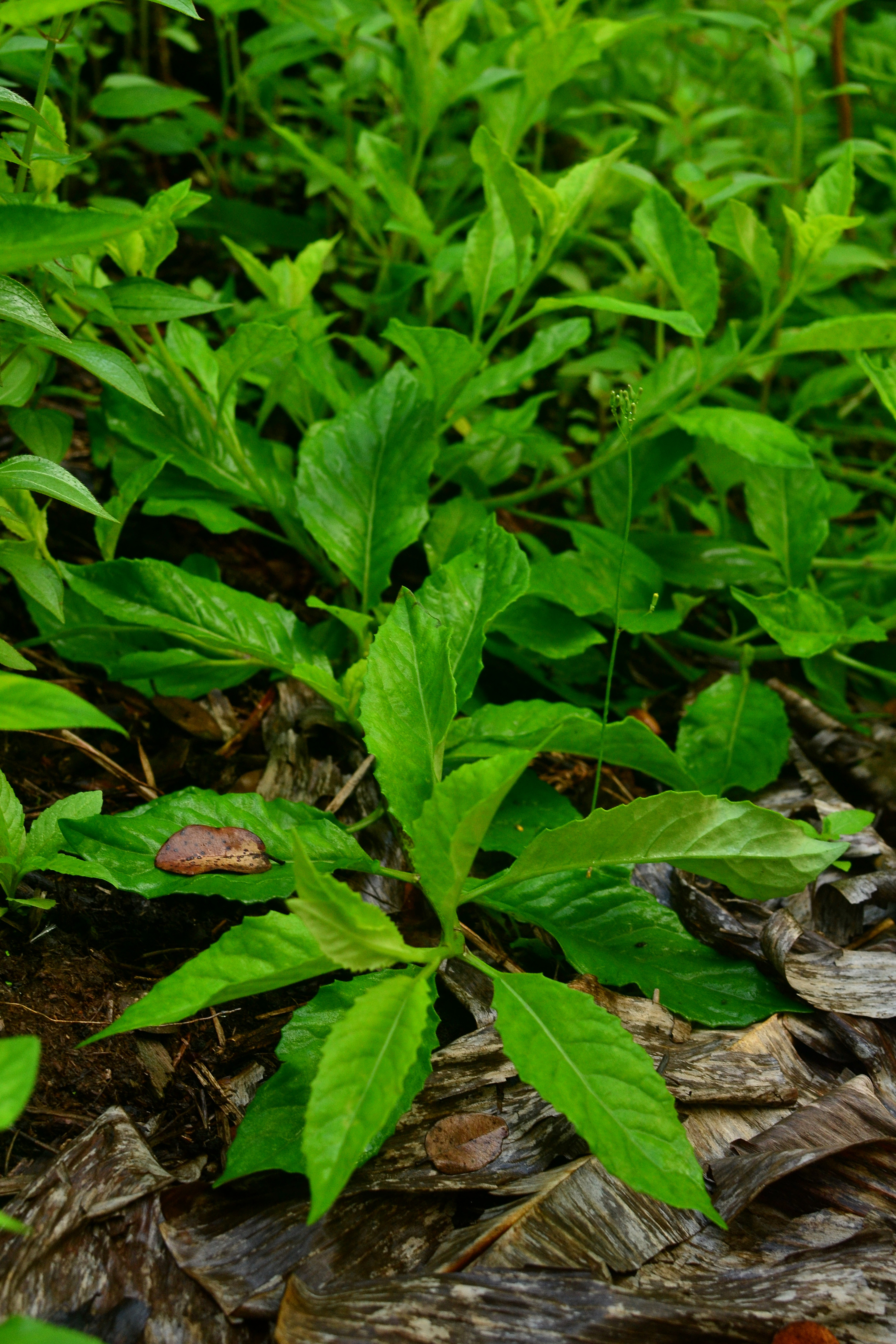
Green variety
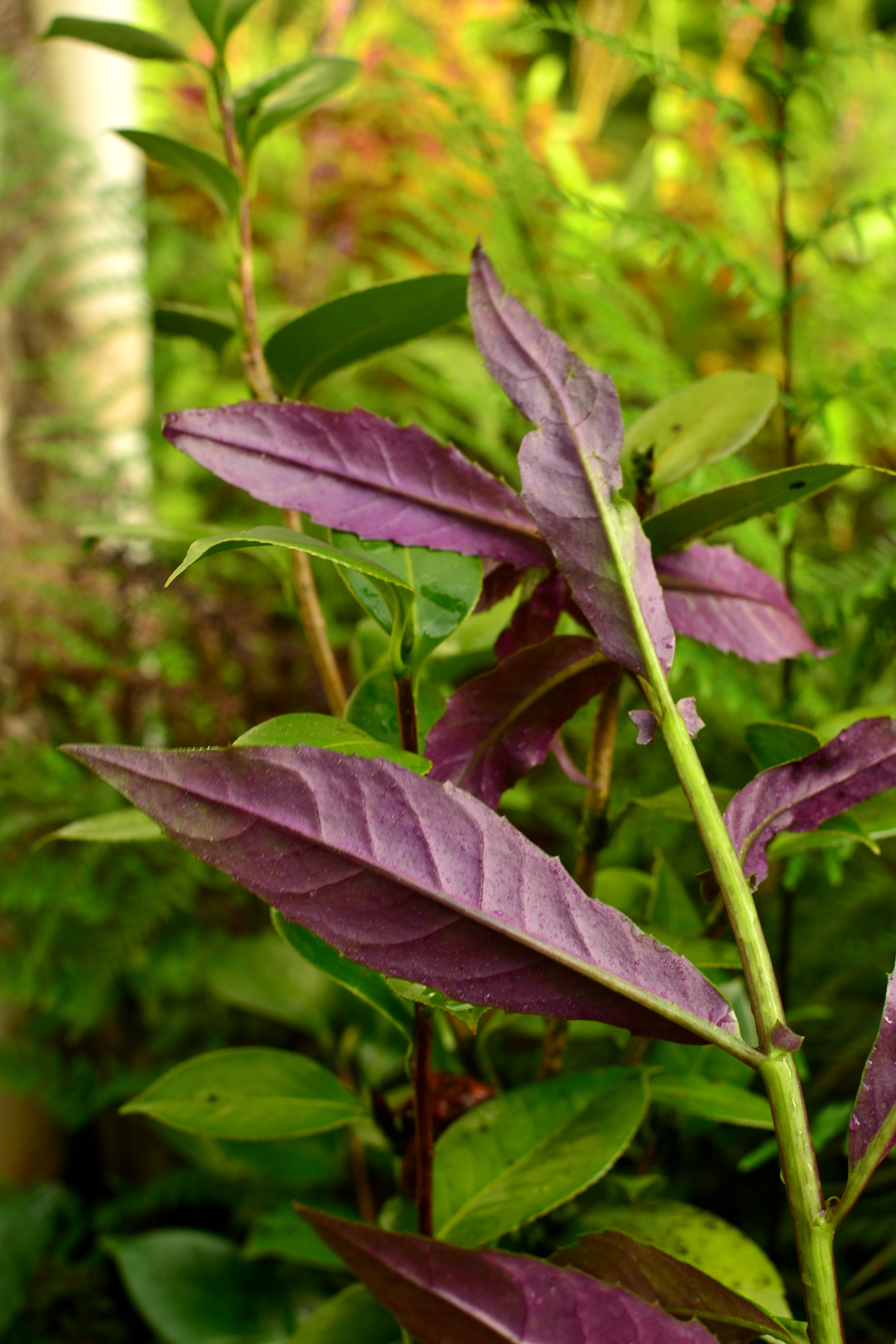
Purple variety
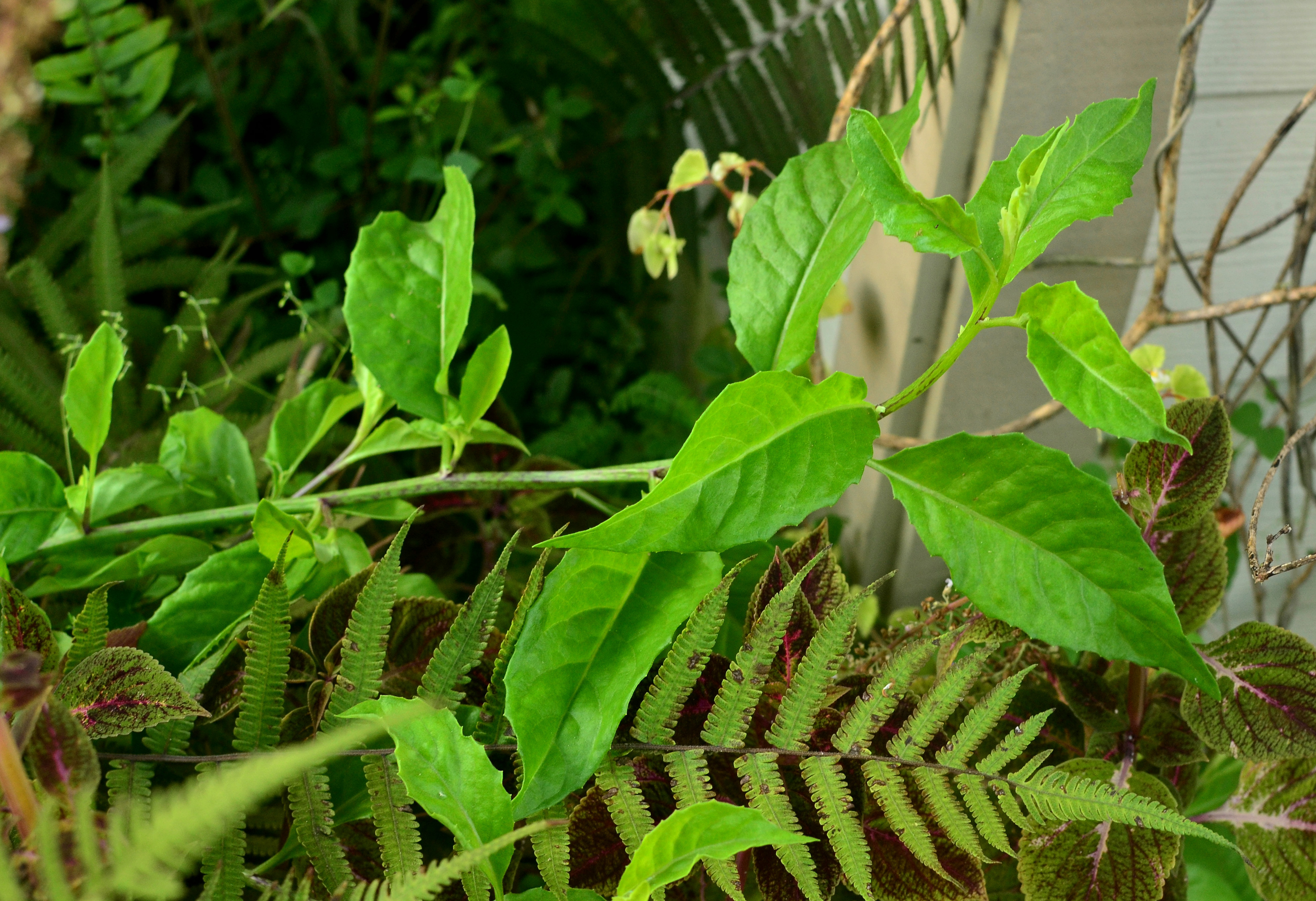
Longevity Spinach (larger leaves)
Propagation
Okinawan Spinach is grown from cuttings.
Stick into the ground and it will root in about a week.
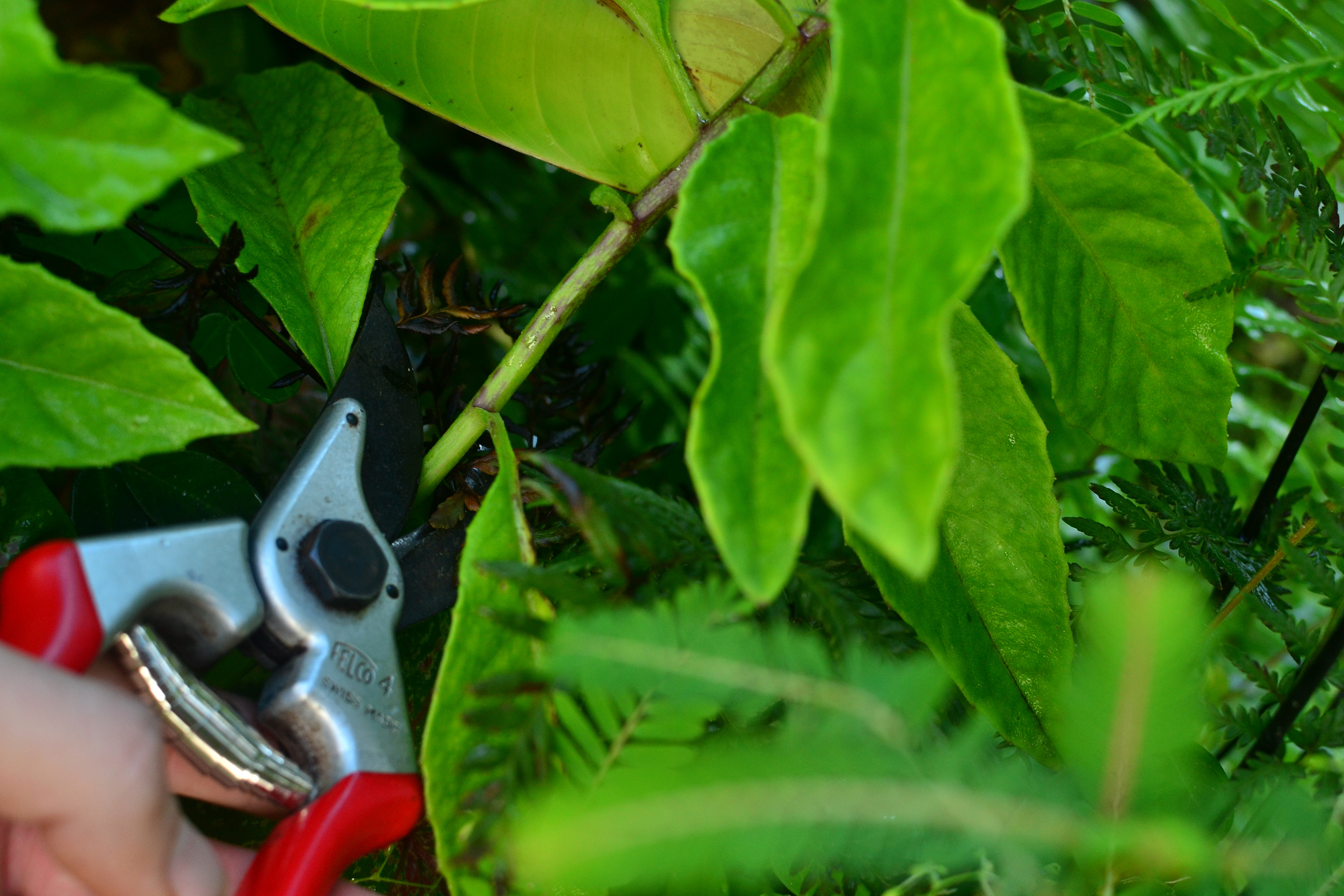
Cut stem
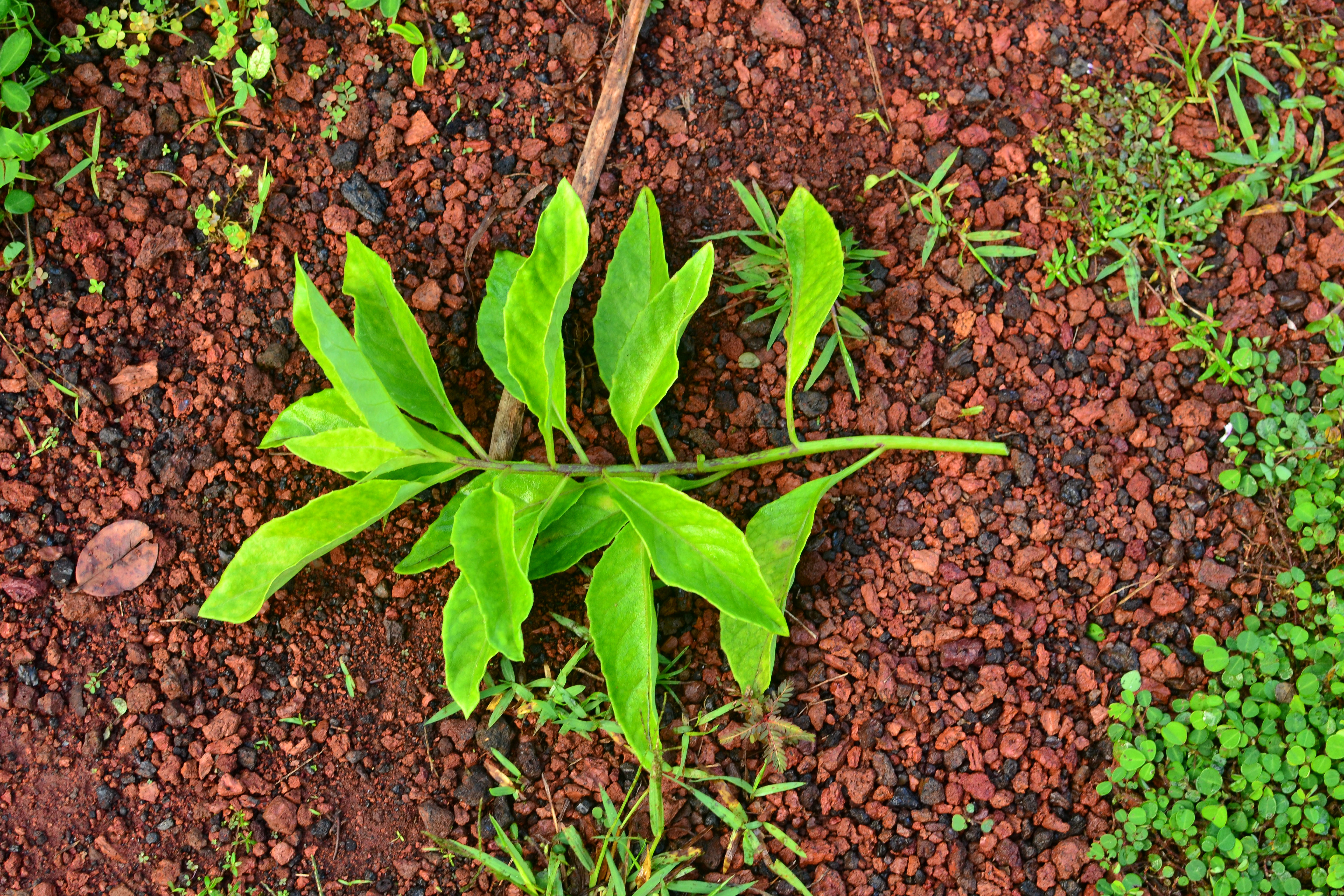
Remove older leaves
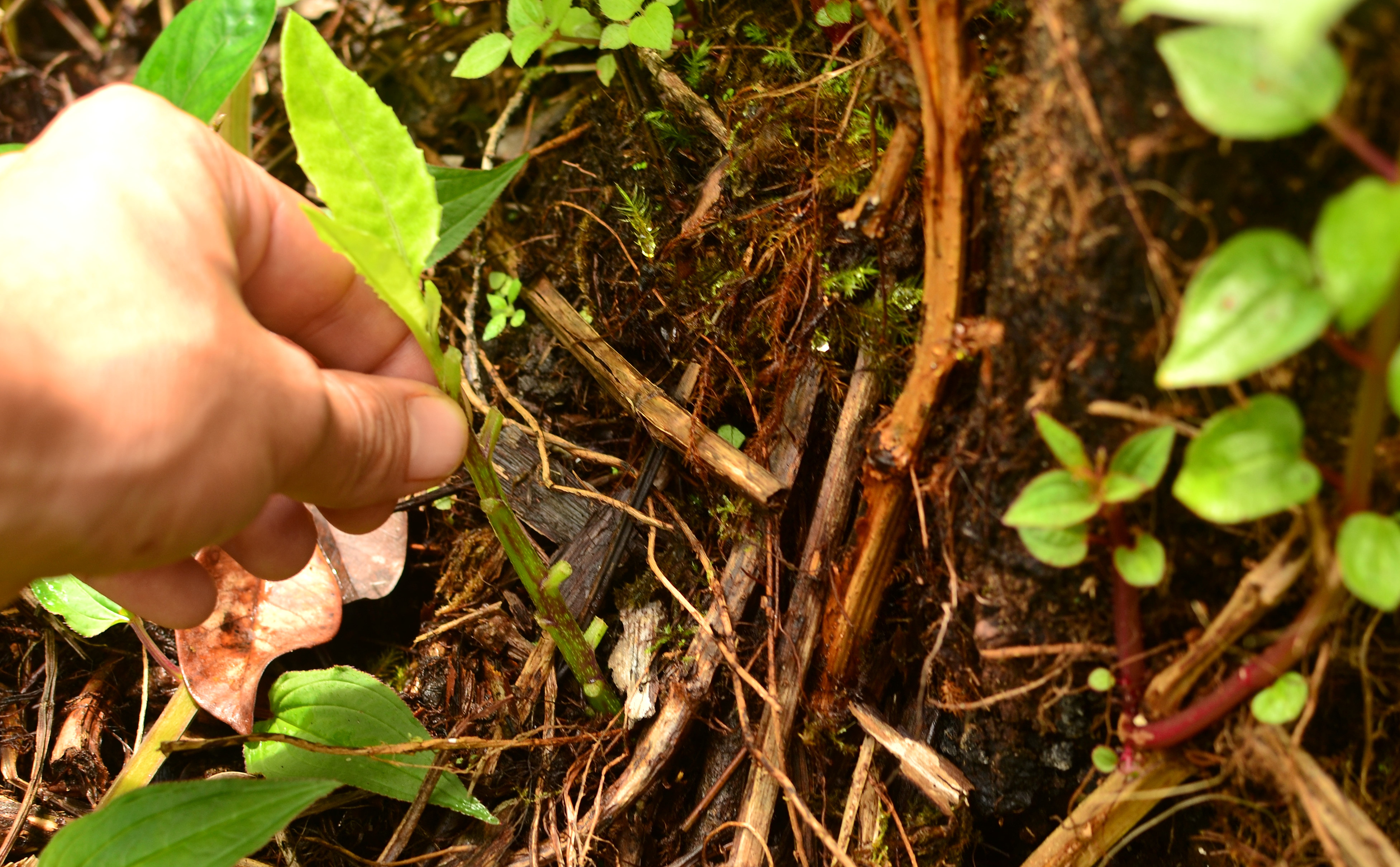
stick into the ground
Care
Plants prefer part shade, and will grow easily and effortlessly.
Regular pruning promotes branching; therefore, creating an abundance of tender shoots and leaves for consumption!
Eating
The leaves are best eaten mixed with other greens to avoid an overtly strong flavor.
Tender leaves and shoot tips may be eaten raw, steamed, stir fried, sautéed, or used in soups, stews or tempura.
Older tougher leaves should be cooked and are less palatable. However, over cooking may lead to sliminess.
Where to obtain planting materials
Ask anyone you know growing Okinawan Spinach for cuttings. You may also find them at a farmers market or a plant sale.
My Garden
Okinawan spinach is one of the first plants I started growing here at the house. I just stuck it into the ground in cinder, and forgot about it. Nearly two years later, it’s still thriving and is a keystone ornamental next to the front entryway. I typically forget about the plant and whenever I’m in need of some crunchy greens, I bump into it. Stumbling through the dense vegetation looking for the sprawling stems, they typically find the shadiest places in the understory and emerge through the top layer of the shrubs and fall back down toward the ground. Making it extremely easy to grab a running ‘vine’ and cut it off to eat the leaves. This, in-turn, gives me propagation materials, I then take them and stick them into the ground in the food forest. Generating an overabundance of high quality leafy greens for consumption. Wow, I love tropical gardening!
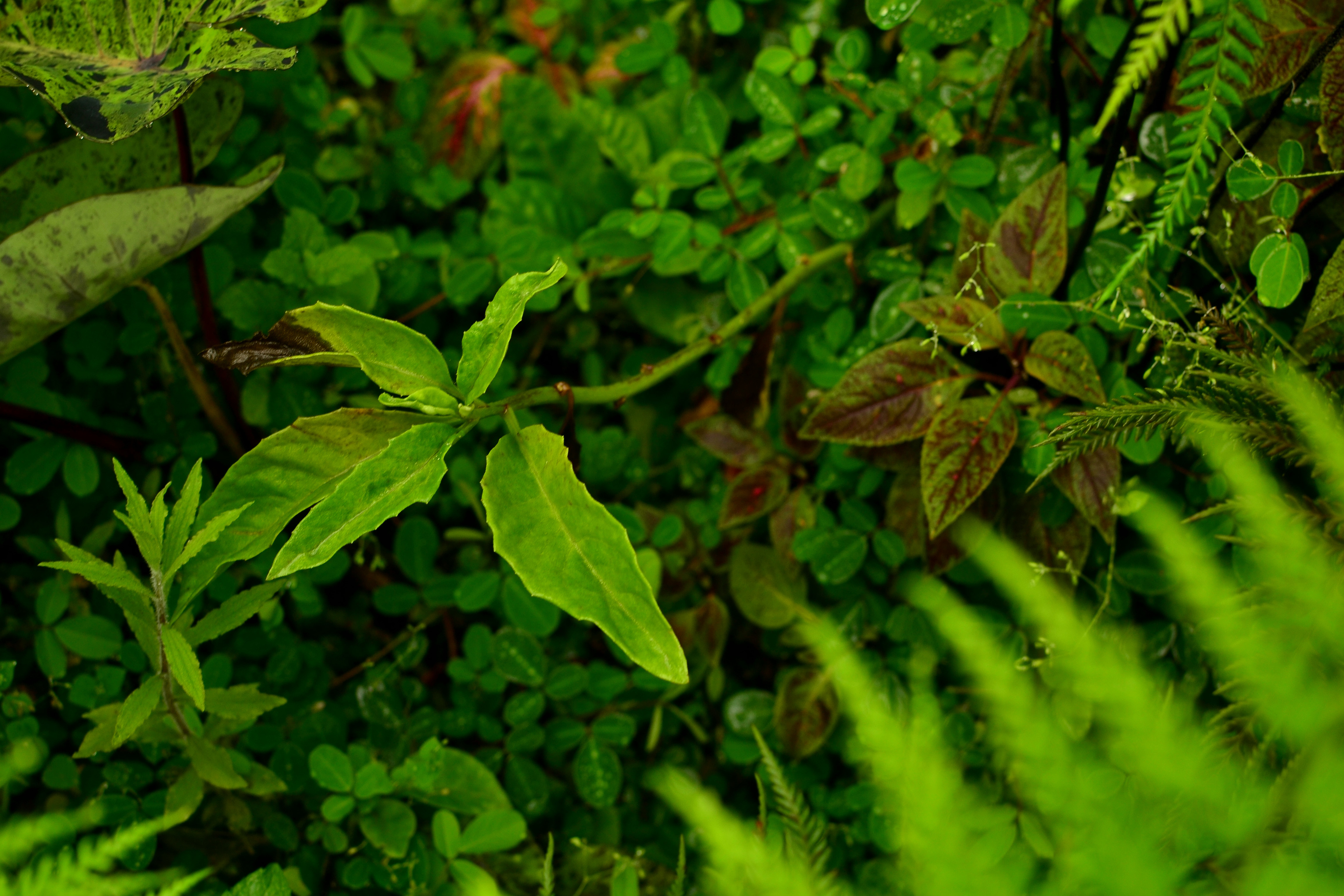
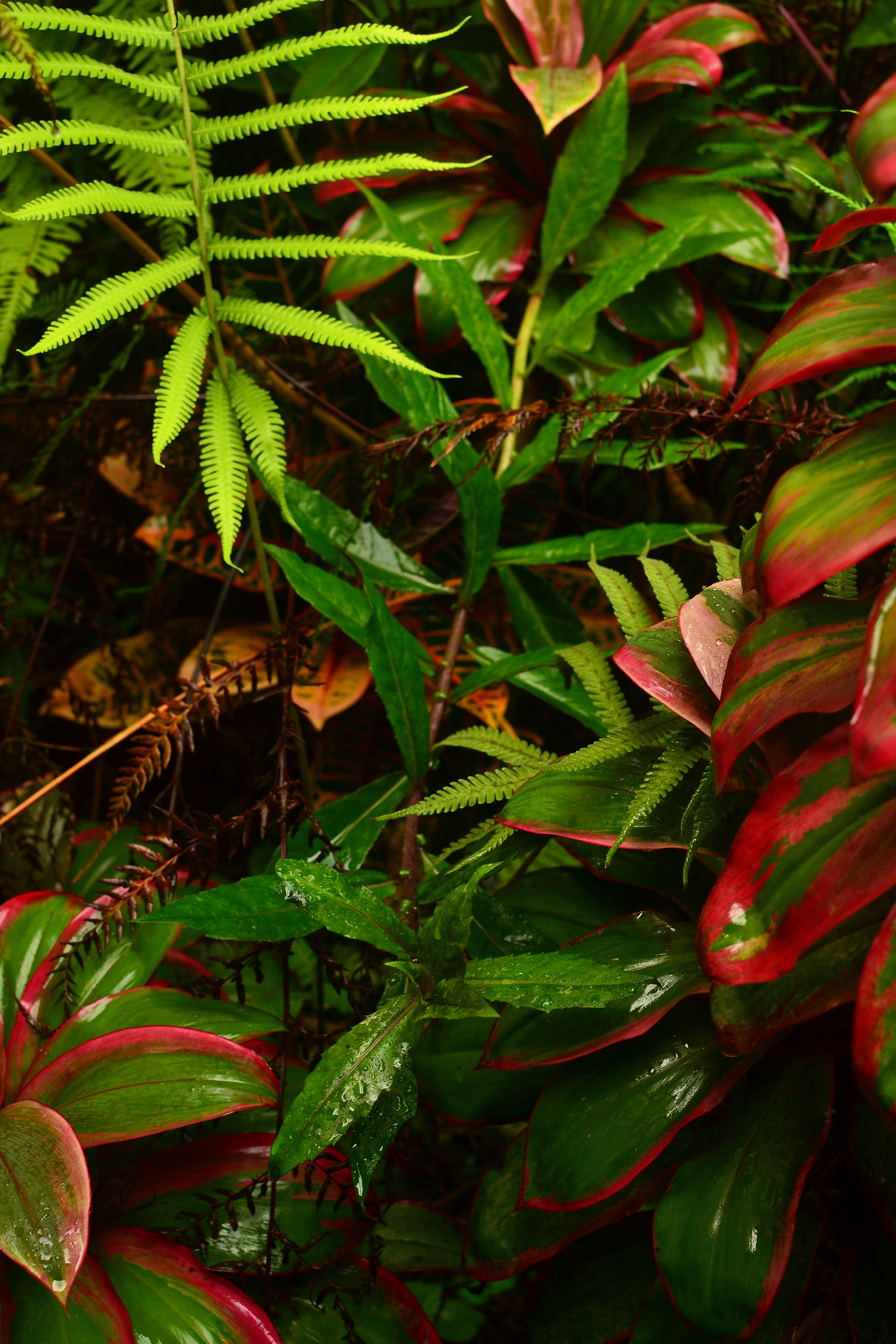
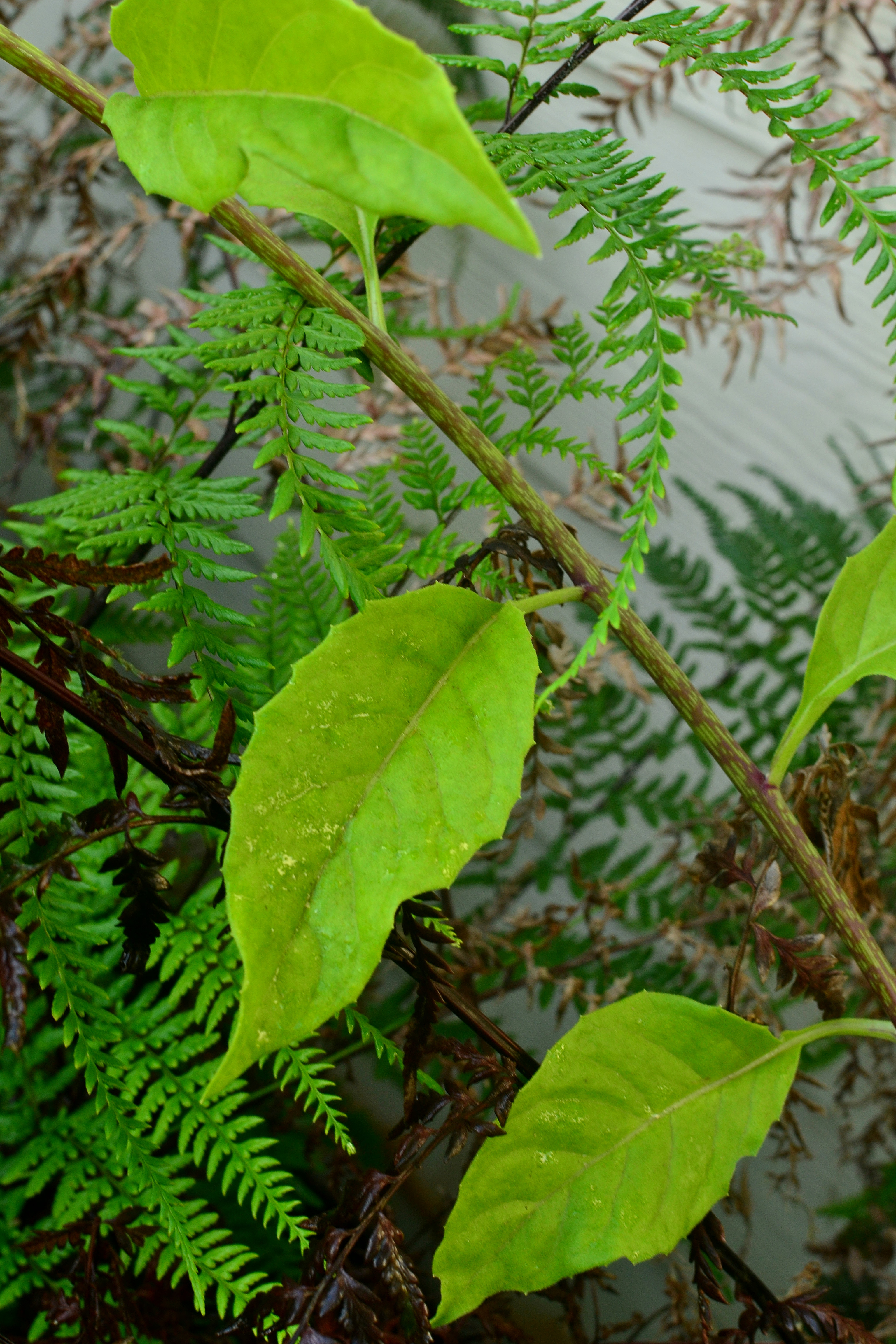
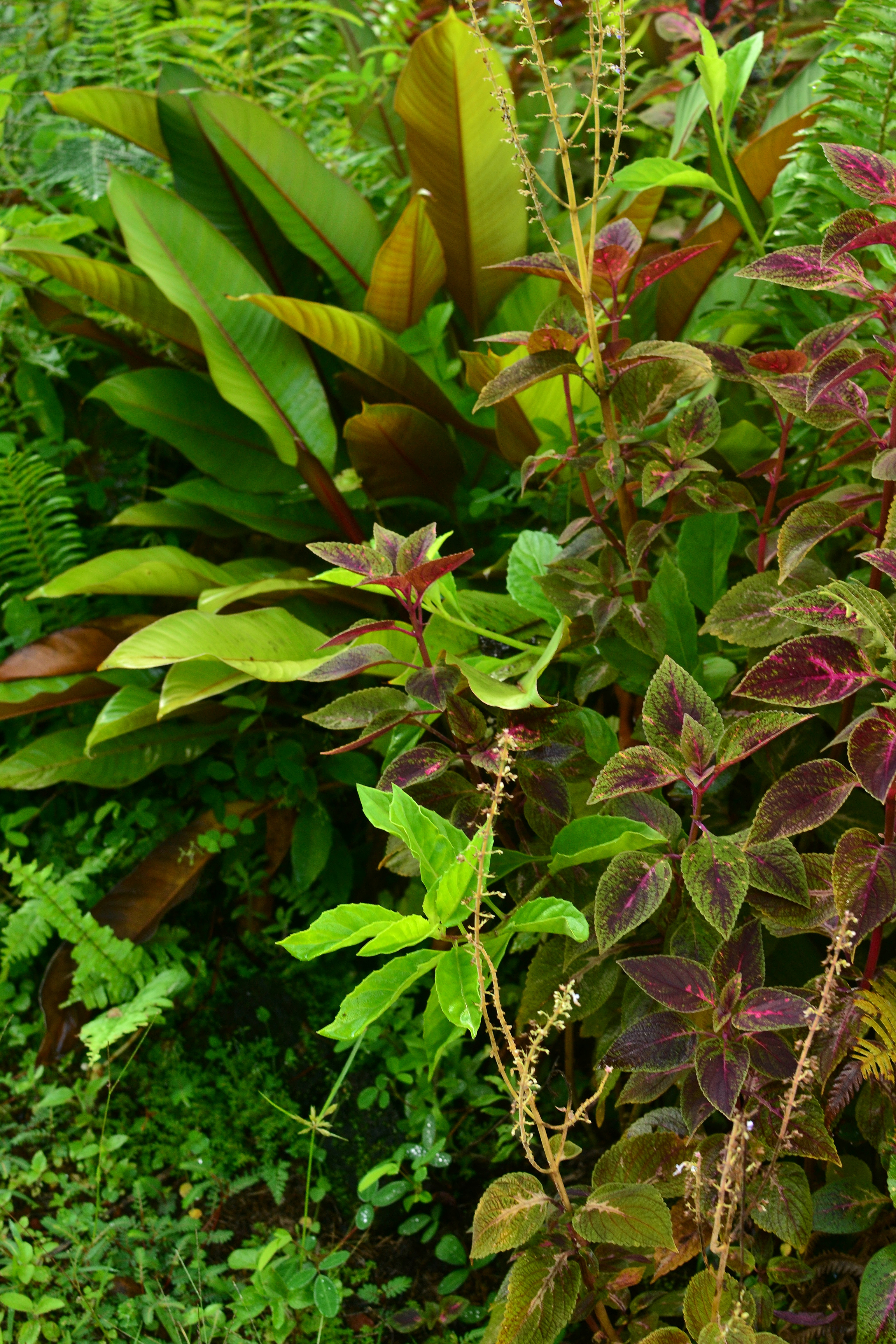
Happy Gardening!
Yeeaa Okinawan spinach! Get in my belly!
Pingback: Rapid Resilient Food Systems | Tropical Self-Sufficiency